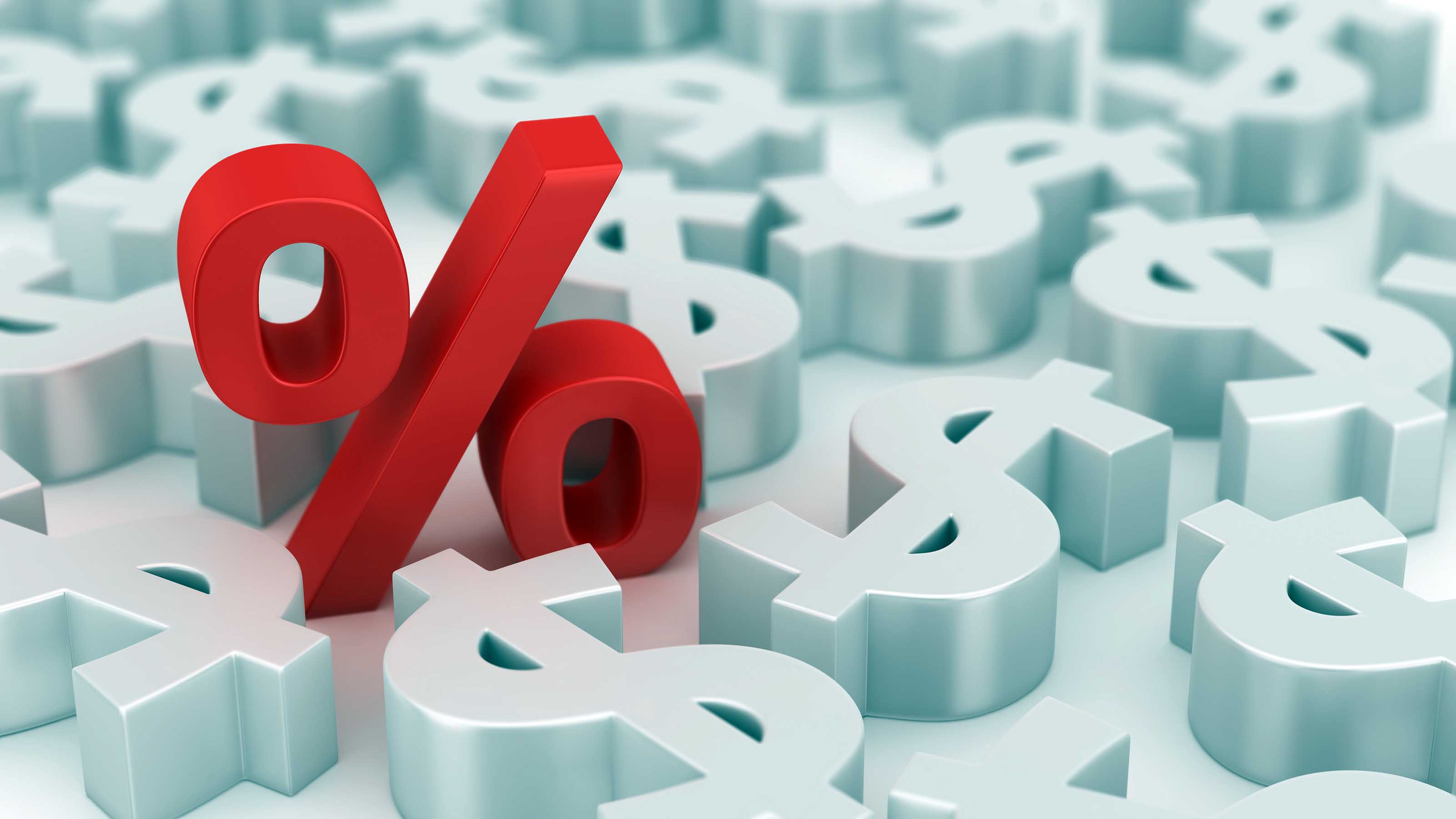Should You Worry About Rising Interest Rates?
Look past the 10-year Treasury yield. Smart investors cast a wide net.


Profit and prosper with the best of Kiplinger's advice on investing, taxes, retirement, personal finance and much more. Delivered daily. Enter your email in the box and click Sign Me Up.
You are now subscribed
Your newsletter sign-up was successful
Want to add more newsletters?

Delivered daily
Kiplinger Today
Profit and prosper with the best of Kiplinger's advice on investing, taxes, retirement, personal finance and much more delivered daily. Smart money moves start here.

Sent five days a week
Kiplinger A Step Ahead
Get practical help to make better financial decisions in your everyday life, from spending to savings on top deals.

Delivered daily
Kiplinger Closing Bell
Get today's biggest financial and investing headlines delivered to your inbox every day the U.S. stock market is open.

Sent twice a week
Kiplinger Adviser Intel
Financial pros across the country share best practices and fresh tactics to preserve and grow your wealth.

Delivered weekly
Kiplinger Tax Tips
Trim your federal and state tax bills with practical tax-planning and tax-cutting strategies.

Sent twice a week
Kiplinger Retirement Tips
Your twice-a-week guide to planning and enjoying a financially secure and richly rewarding retirement

Sent bimonthly.
Kiplinger Adviser Angle
Insights for advisers, wealth managers and other financial professionals.

Sent twice a week
Kiplinger Investing Weekly
Your twice-a-week roundup of promising stocks, funds, companies and industries you should consider, ones you should avoid, and why.

Sent weekly for six weeks
Kiplinger Invest for Retirement
Your step-by-step six-part series on how to invest for retirement, from devising a successful strategy to exactly which investments to choose.
The recent rise in U.S. long-term interest rates blew in suddenly enough for headline writers to dust off fraught phrases such as “bond rout,” “investor boycott” and “tantrum.” (Most bond prices sink when interest rates rise and vice versa.) Talk of a burst bubble colors the financial news here and there; it applies to stocks on a bad day, but more openly and brazenly to bonds. (For more on bubbles, see Are Stocks in a Bubble?) The Federal Reserve seems impatient for inflation to reach 2% and stay there. And inflation expectations heavily influence bond traders’ behavior.
But might this fear and loathing be overblown? The broad Bloomberg Barclays Aggregate Bond index is down 3% so far in 2021. The losses are less for municipals and mortgages, more for long Treasuries and investment-grade corporate debt. To drop 3% is equivalent to kissing away nearly two years of yield, but after consecutive annual 8% total returns, this is far from a bond “rout.”
So, then, should you reallocate your income-generating money? Or simply delay investing new dollars into longer-duration taxable bonds and bond funds? I have no objection to the latter. But I dislike dumping long-successful investments because of transitory problems. Even after rising from 0.52% in August to 1.6% recently, 10-year Treasury yields are less than the 1.9% at the outset of 2020. And before you assume 1.6% is a whistle-stop on the way to the 3% T-bond yield last seen in 2018, you can watch for powerful defensive fire from the various financial bulwarks and citadels. “The Fed can be creative on how to taper its bond buying and not create real stress on long-term rates,” says BlackRock bond chief and portfolio manager Rick Rieder, who also maintains that automation and other technologies will restrain inflation.
From just $107.88 $24.99 for Kiplinger Personal Finance
Become a smarter, better informed investor. Subscribe from just $107.88 $24.99, plus get up to 4 Special Issues

Sign up for Kiplinger’s Free Newsletters
Profit and prosper with the best of expert advice on investing, taxes, retirement, personal finance and more - straight to your e-mail.
Profit and prosper with the best of expert advice - straight to your e-mail.
Congress and the White House also do not want to risk an investor rebellion so early in the new administration. “The stimulus itself is not enough [to cause severe trouble for bonds] if the economy is still shaky,” says Anders Persson, Nuveen’s global fixed-income chief. Plus, the growth hopes stemming from COVID vaccines and the moderately inflationary spike in oil prices are baked into the fresh interest-rate and inflation numbers. That also implies interest rates will not spiral upward all year.
Look to the pros. Now is the time to rely on good managers to find opportunities. “We’re going back to the old playbook,” Persson says. That means bottom-up credit analysis and looking for the sectors and types of bonds (and preferred stocks) that will benefit from the gradually improving health of banks, energy firms, retailers and real estate. Through March 5, a few bond yardsticks are in the green for the year. One is the S&P Municipal Bond 50% Investment Grade/50% High Yield index, up 0.4%. You can copy it with a combination of a high-yield muni fund such as Nuveen High Yield Municipal (symbol NHMRX) and an actively managed high-grade muni fund, such as Baird Strategic (BSNSX) or Fidelity Intermediate-Term Municipal Income (FLTMX).
With stocks, hunt for dividends. Plenty of cash tops off already rich corporate balance sheets, and dividend-oriented sectors including heavy industry, finance, transportation and energy infrastructure all theoretically benefit from the stronger economic growth. Bank stocks are no longer giveaways, but you can still get 3% to 4% dividend yields on newly invested money. Do not rush to cash out profits. The likes of 3M (MMM, $181), Illinois Tool Works (ITW, $210) and United Parcel Service (UPS, $164) offer above-average yields and have earnings momentum. Utility shares are at the lower end of their trading range. So are Verizon (VZ, $56) and AT&T (T, $30). Keep calm, then, and look past the 10-year Treasury yield. Smart investors cast a wide net.
Profit and prosper with the best of Kiplinger's advice on investing, taxes, retirement, personal finance and much more. Delivered daily. Enter your email in the box and click Sign Me Up.

Kosnett is the editor of Kiplinger Investing for Income and writes the "Cash in Hand" column for Kiplinger Personal Finance. He is an income-investing expert who covers bonds, real estate investment trusts, oil and gas income deals, dividend stocks and anything else that pays interest and dividends. He joined Kiplinger in 1981 after six years in newspapers, including the Baltimore Sun. He is a 1976 journalism graduate from the Medill School at Northwestern University and completed an executive program at the Carnegie-Mellon University business school in 1978.
-
 The Cost of Leaving Your Money in a Low-Rate Account
The Cost of Leaving Your Money in a Low-Rate AccountWhy parking your cash in low-yield accounts could be costing you, and smarter alternatives that preserve liquidity while boosting returns.
-
 I want to sell our beach house to retire now, but my wife wants to keep it.
I want to sell our beach house to retire now, but my wife wants to keep it.I want to sell the $610K vacation home and retire now, but my wife envisions a beach retirement in 8 years. We asked financial advisers to weigh in.
-
 How to Add a Pet Trust to Your Estate Plan
How to Add a Pet Trust to Your Estate PlanAdding a pet trust to your estate plan can ensure your pets are properly looked after when you're no longer able to care for them. This is how to go about it.
-
 The New Fed Chair Was Announced: What You Need to Know
The New Fed Chair Was Announced: What You Need to KnowPresident Donald Trump announced Kevin Warsh as his selection for the next chair of the Federal Reserve, who will replace Jerome Powell.
-
 January Fed Meeting: Updates and Commentary
January Fed Meeting: Updates and CommentaryThe January Fed meeting marked the first central bank gathering of 2026, with Fed Chair Powell & Co. voting to keep interest rates unchanged.
-
 The December CPI Report Is Out. Here's What It Means for the Fed's Next Move
The December CPI Report Is Out. Here's What It Means for the Fed's Next MoveThe December CPI report came in lighter than expected, but housing costs remain an overhang.
-
 How Worried Should Investors Be About a Jerome Powell Investigation?
How Worried Should Investors Be About a Jerome Powell Investigation?The Justice Department served subpoenas on the Fed about a project to remodel the central bank's historic buildings.
-
 The December Jobs Report Is Out. Here's What It Means for the Next Fed Meeting
The December Jobs Report Is Out. Here's What It Means for the Next Fed MeetingThe December jobs report signaled a sluggish labor market, but it's not weak enough for the Fed to cut rates later this month.
-
 The November CPI Report Is Out. Here's What It Means for Rising Prices
The November CPI Report Is Out. Here's What It Means for Rising PricesThe November CPI report came in lighter than expected, but the delayed data give an incomplete picture of inflation, say economists.
-
 The Delayed November Jobs Report Is Out. Here's What It Means for the Fed and Rate Cuts
The Delayed November Jobs Report Is Out. Here's What It Means for the Fed and Rate CutsThe November jobs report came in higher than expected, although it still shows plenty of signs of weakness in the labor market.
-
 December Fed Meeting: Updates and Commentary
December Fed Meeting: Updates and CommentaryThe December Fed meeting is one of the last key economic events of 2025, with Wall Street closely watching what Chair Powell & Co. will do about interest rates.